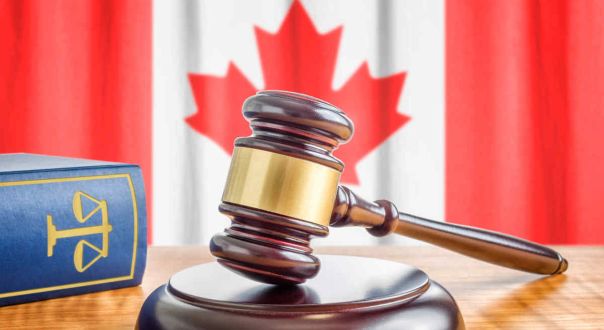Navigating the Legal Landscape of Canadian Online Casinos
The online gambling industry in Canada has grown and changed significantly in the last several years, bringing with it opportunities as well as challenges for operators, players, and regulatory agencies. It is becoming more and more important for all parties concerned to comprehend the legal framework surrounding online casinos as technology develops and customer tastes change.
This thorough study delves into the laws governing online casinos in Canada, examining the rules, guidelines, and important factors that influence the sector. We look at the complex network of laws that control online gambling across the nation, from the federal Criminal Code to local regulating agencies.
Historical Background of Online Gambling Laws in Canada
In Canada, online gambling has had a distinct history characterised by changing laws and public perceptions. Understanding the past of these laws is crucial to comprehending the legal system as it exists today.
The Emergence of Online Casinos
Online casinos emerged as a new kind of entertainment in the late 20th century as a result of the Internet revolution. The casino sector followed technological advancements and embraced digital channels to expand its customer base. The rapid adoption of these online gambling environments by Canadians made regulatory action urgently necessary.
The Canadian legal system did not initially specifically recognize internet gaming. The majority of laws were aimed at real casinos and gambling establishments. This established legal system faced serious challenges with the emergence of internet casinos. There was a period of legal uncertainty as a result of legislators’ difficulties interpreting the law to accommodate this new form of entertainment.
Evolution of Gambling Laws
The Canadian government quickly realised that, in light of technological breakthroughs, regulations needed to be changed. Gradually, the ambiguous legal environment gave way to a more extensive regulatory framework.
The Criminal Code was revised in 2001 to incorporate rules concerning online gambling. Provinces are now able to licence and oversee internet casinos operating inside their boundaries thanks to this. This marked a significant movement in the regulation of internet casinos towards provincial autonomy, which was welcome in the Canadian gambling landscape.

Furthermore, the Kahnawake Gaming Commission—which is situated in Quebec’s Mohawk Territory of Kahnawake—became a significant player in the internet gambling sector. It has a significant impact on the direction of online gambling in Canada by housing one of the biggest data centres for iGaming in the world.
This development is a reflection of Canada’s dedication to keeping up with technology and striking a balance between consumer safety, ethical gaming, and the financial advantages of online casinos. The legal environment surrounding internet gambling is changing along with it, which has led to a lively debate about the most effective ways to control this rapidly expanding sector.
Learn about the up-to-date advantages and rules by using the legal Canadian online casinos, as well as the thrilling opportunities they present to players from Canada. Legal online casinos in Canada offer a safe and entertaining gambling environment with an emphasis on responsible gaming and customer safety.
The Legal Framework for Online Casinos in Canada
In Canada, the legality of internet casinos is a complicated issue that is influenced by a number of federal, provincial, and Indigenous regulations. Examining this framework’s three primary constituents—the Criminal Code of Canada, provincial and territorial laws, and the Kahnawake Gaming Commission—is essential to understanding it completely.
The Criminal Code of Canada and Gambling
The main federal law that governs gambling, including internet casinos, is the Criminal Code of Canada. At first, it excluded the online gaming sector, but changes in 2001 recognized the growing popularity of internet gambling.
The Code’s Section 207 gives provinces and territories the authority to supervise and control gaming, including internet casinos, within their borders. An intriguing interpretation emerged from the requirement that an online casino be “conducted and managed” within the province: the casino would be considered lawful if its servers were physically situated in the province.
Provincial and Territorial Regulations
Every Canadian province and territory has the authority to create its own gambling laws, building on those found in the Criminal Code. Consequently, the legal environment around internet casinos varies greatly throughout Canada.
For example, the province of Ontario has taken the initiative to create a thorough framework for internet casinos. Jackpot City, which has garnered favourable reviews from local players, is an excellent illustration of an online casino that is subject to strict regulations. This review of Jackpot City Casino has additional information about it.
The Role of the Kahnawake Gaming Commission
The Kahnawake Gaming Commission is a prominent participant in the Canadian online gambling regulatory landscape. Although the Commission is physically situated in Canada, it is run by the Kahnawake Mohawk Territory, an acknowledged sovereign Indigenous country.
The Kahnawake Gaming Commission has been granting licences to internet casinos all around the world, including Canada, since 1996. It runs one of the biggest internet gambling data centres in the world and has made a name for itself as a reputable regulator of the online casino sector.
Each of the three components of Canada’s complex legal framework for online casinos has a major bearing on the others. To successfully navigate the ever-changing and intricate terrain of Canadian online gambling regulations, a thorough understanding of this system is essential.
The Implication of the Canadian Laws for Players
The legal framework governing online gambling in Canada directly affects players, who need to be aware of their rights and any legal repercussions. Players can make more educated decisions about their online gambling activity by being aware of these laws.
Player Rights and Protections
Players have a lot of rights and protections under Canadian law. Online casinos are required to uphold norms of responsible gaming, fairness, and openness. Laws protecting privacy also guarantee the security of personal data. As long as they adhere to the online casino’s terms and regulations, players are free to withdraw their earnings without experiencing any unnecessary difficulties.
One of the most important aspects of player protection in Canada is the mandate that casinos encourage responsible gaming. Casinos need to provide resources to patrons so they can comprehend and control their gambling behaviours. These could include deposit caps, self-exclusion plans, and tools for learning about problem gambling.
Here’s a summary of key player rights and protections:
- Fair Play– Games must be free from manipulation, ensuring fair outcomes for all players.
- Privacy-Personal data collected by casinos must be protected and used responsibly.
- Access to Winnings– Players are entitled to access their winnings in a reasonable time frame.
- Responsible Gambling Resources– Casinos must provide resources to help players manage their gambling habits.
Legal Consequences for Violations
While most forms of online gambling are legal in Canada, users should be mindful of any potential legal repercussions. Engaging in illicit internet gambling may carry consequences, such as fines or legal action. In addition, gamers who attempt to cheat or rig online casino games may suffer legal repercussions.
Age and Identity Verification
Last but not least, the requirement for age and identity verification is one of the most important parts of Canadian online gambling law. Every player is required to present identification and demonstrate that they are of legal age, which is typically 19 (though it is only 18 in Alberta, Manitoba, and Quebec). Ensuring the integrity of the online gambling environment and combating underage gambling depend heavily on this step.
The regulations governing online gambling in Canada provide a strong foundation for player protection and the upkeep of an impartial, open, and responsible gaming environment. It is the responsibility of the players to comprehend these regulations and make wise choices regarding their online gaming.
The Implication of the Canadian Laws for Online Casino Operators
Operators must exercise caution when navigating the Canadian legal system, just as players are constrained by the regulations that govern online casinos. This includes being aware of licensing requirements, abiding with advertising laws, and following tax laws.
Licensing Requirements
A licence from the Kahnawake Gaming Commission or the appropriate provincial body is needed to operate an online casino in Canada. Strict regulations are enforced by these licensing organisations to support integrity, fairness, and openness in the online gaming sector.
Licensed operators are required to make sure that their gaming software is free from manipulation and are subject to frequent audits. They must also have policies in place to safeguard player information and encourage responsible gaming.
Here’s an overview of key licensing requirements:
- Gaming Software– Must be fair and free from manipulation. Regular audits are required.
- Player Data Protection– Operators must implement measures to protect player data.
- Responsible Gambling– Operators must promote responsible gambling and provide resources for players.
Taxation of Online Casino Revenue
In Canada, internet casinos are subject to the same tax laws as other businesses. According to Canadian law, they must pay taxes on their income. Nevertheless, depending on the province or area, the details may change.
It is essential for Canadian operators of online casinos to comprehend these laws and regulations. Penalties such as licence suspension or heavy fines may be imposed for noncompliance. Operators must thus make sure they are completely compliant with Canadian legislation and keep up with any legal advancements.
Future of Online Casino Laws in Canada
Given how quickly the internet casino market is developing, it is possible that Canadian gambling rules will also change quickly in order to stay up to date. A new era of online gambling regulation in the nation is being shaped by recent legal reforms that already allude to future trends.
Recent Legal Changes and Their Impact
The Canadian online casino market has lately been impacted by a number of noteworthy legislative changes. Bill C-218, which amended the Criminal Code to permit single-event sports betting, was passed in 2021. This action, which gave online gambling operators new options, was heralded as a significant breakthrough.
The following are some ways that these changes are affecting the Canadian online gambling market:
Enhanced Competition: With the legalisation of single-event sports betting, a wave of new operators is anticipated to enter the Canadian industry.
Economic Boost: It is anticipated that the expansion of the online casino sector will strengthen regional economies by generating jobs and raising tax receipts.
Improved Player Protection: As operators compete for players’ trust, more competition frequently results in improved consumer protection.
Future Legal Trends and Predictions
We may foresee a few significant developments in the legal environment around online casinos in Canada going forward:
Tighter rules: To protect players and maintain fairness, tighter rules may be implemented as the sector expands.
Increased Focus on Responsible Gambling: As internet gambling grows in popularity, initiatives to encourage it are probably going to be strengthened.
Greater Provincial Autonomy: In keeping with international trends, provinces may be given even more latitude to regulate internet casinos inside their territories.
Although the regulations governing online casinos in Canada may change in the future, these tendencies provide some indications of what might come next. In the rapidly changing world of online casinos, it is imperative for both operators and players to stay up to date on these changes.
